How long do dental implants last? Generally, dental implants can last up to 25 years or even a lifetime if properly cared for. In this article, we’ll delve into the factors that affect their lifespan, the dental implant procedure itself, and provide tips on maintaining them for years to come, all while highlighting their positive impact on oral and overall health.
Key Takeaways
- Dental implants provide a permanent tooth replacement solution with an average lifespan of 25 years or more, contingent upon proper care and regular dental check-ups.
- Factors influencing the longevity of dental implants include the expertise of the dentist, bone health, medical conditions, implant quality, and lifestyle choices such as smoking and teeth grinding.
- Maintaining good oral hygiene and avoiding harmful habits are essential for maximizing the health and longevity of dental implants.
Understanding Dental Implants
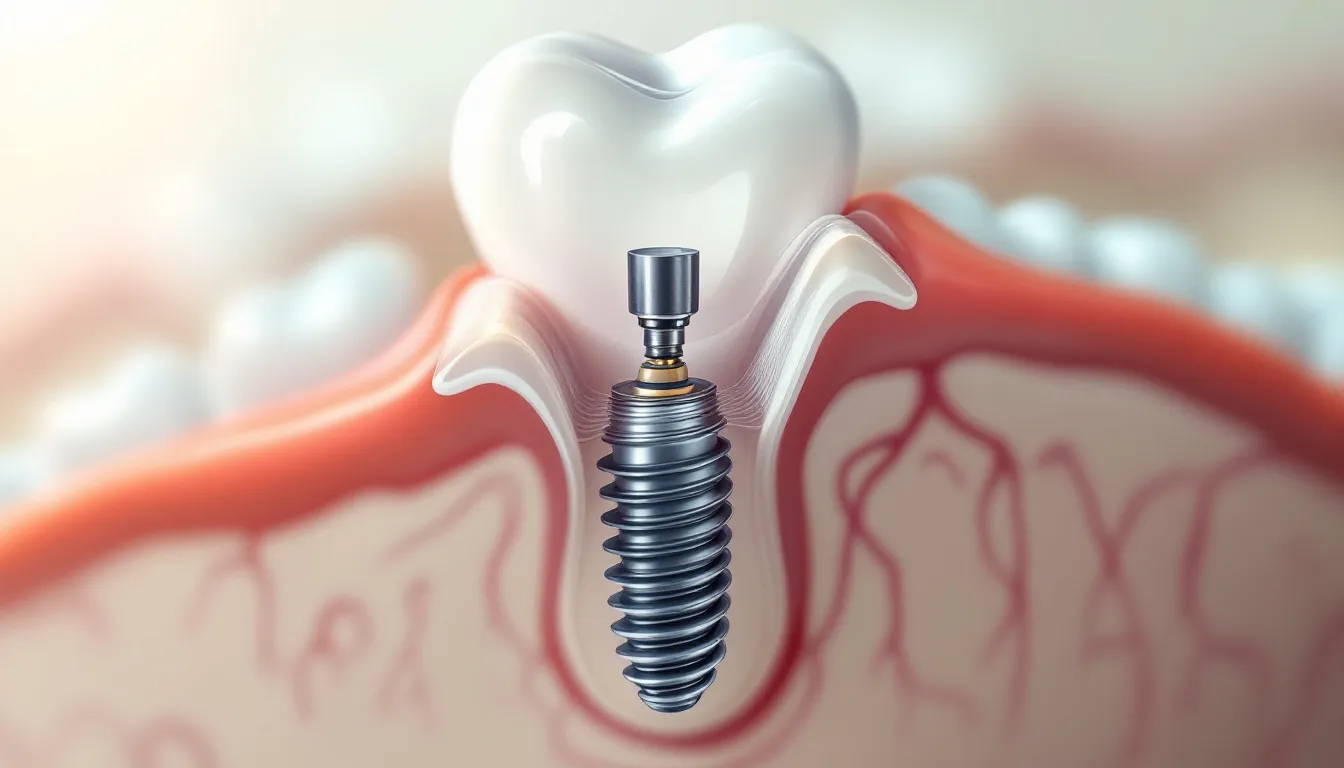
Dental implants are sophisticated tooth replacements designed to provide a permanent solution for tooth loss. At Dentistry On Guelph, we’ve seen how unlike traditional dentures or dental bridges, these implants do not rely on surrounding teeth for support. Instead, a new implant consists of a titanium rod that acts as an artificial tooth root, an abutment, and a restoration like a crown or bridge. This structure mimics the function of natural teeth, providing stability and strength, resulting in an actual implant that offers a natural looking tooth and artificial teeth.
One of the standout benefits of this tooth replacement option is its ability to replace missing teeth effectively, restoring chewing ability, enhancing oral health, and improving one’s smile and self-esteem. Because they are anchored in the jawbone, they offer a more natural-looking and feeling solution compared to other methods. Furthermore, this option does not affect adjacent teeth, preserving the overall oral health and integrity of the mouth.
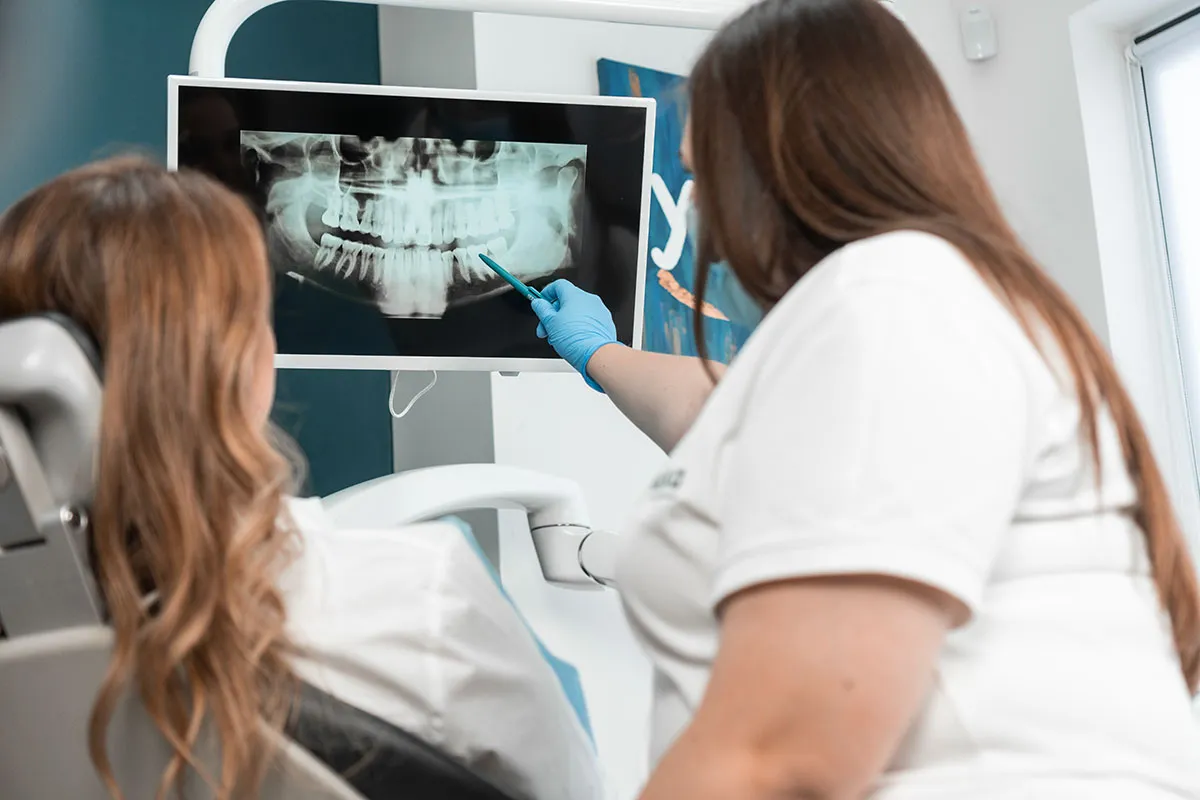
Choosing dental implants means investing in a long-term solution that not only addresses the issue of missing teeth but also contributes positively to your oral and overall health. The implants permanent nature of dental implants ensures that you can enjoy a functional and aesthetically pleasing smile for many years to come.
Expected Lifespan of Dental Implants
The longevity of implants is one of their most compelling features. On average, long do these restorations can last up to 25 years or more, given that they are properly cared for. This impressive lifespan means that, in many cases, you may never need to replace your implant, making it a cost-effective and durable solution for tooth replacement.
Studies have shown remarkable success rates for the most reliable implants. For instance, a 30-year study reported a 100% survival rate for these devices, while another study from the Royal College of Dental Surgeons found a 96.7% survival rate after five years. These statistics highlight the reliability and durability of implants when placed and maintained properly
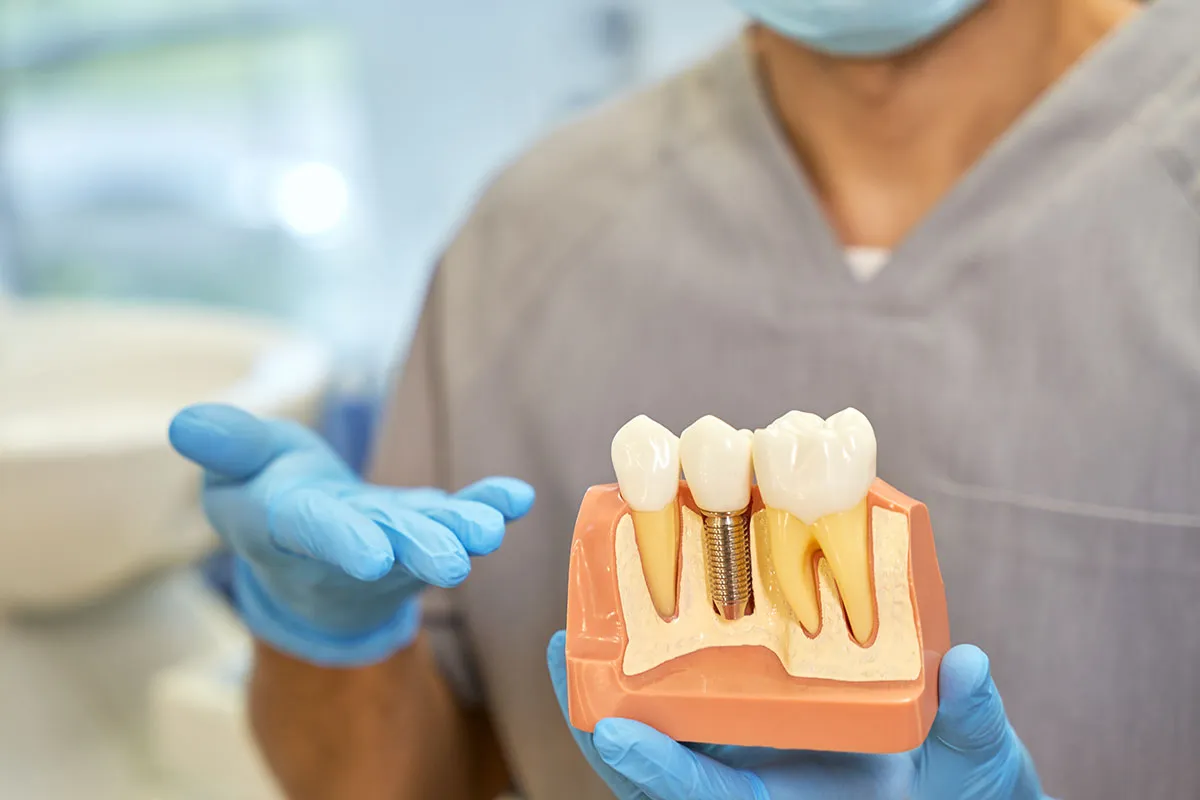
While dental implants can potentially last a lifetime, their durability depends on factors such as the type and position of the teeth, chewing pressure, and the dental team’s expertise. Regular dental appointments and diligent dental care are crucial to ensuring that your dental implants remain in optimal condition for as long as possible.
Key Factors Influencing Dental Implant Longevity
The longevity of dental implants isn’t solely dependent on the implant itself. Various factors play a significant role in determining how long these tooth replacements last. These include the expertise of the dentist, bone health and density, medical conditions, the quality of the implants, and lifestyle choices.
Understanding these factors affecting can help you make informed decisions to maximize the lifespan of your new dental implant.
Expertise of the Dentist
A dentist’s expertise significantly impacts the success of the dental implant procedure. Dental implants Guelph specialists ensure better implant placement and overall health. A dentist with extensive experience in dental implant surgery is likely to have a higher success rate and can ensure that the implants are placed correctly, minimizing the risk of complications, especially when compared to an inexperienced surgeon.
Patients should ask about their dentist’s success rate with implants and details of the procedure. Factors such as the brand, size, and precise placement of the implant are crucial for achieving the best results.
Choosing a qualified professional enhances the longevity of your dental implants by ensuring optimal placement.
Bone Health and Density
Bone health and density are paramount for the success of implants. The jawbone must have enough bone density and quality to support the actual dental implant. Insufficient bone density can lead to implant failure. Before the dental implant procedure, the Guelph family dental team will assess the jawbone quality using X-rays or 3D modeling to ensure it can support the implant and maintain healthy bone tissue.
In cases where the bone is insufficient due to trauma or periodontal disease, procedures such as a bone graft can create more bone for the implant site. Bone grafting involves taking bone from another part of the body or using synthetic materials to build up the jawbone. This procedure can significantly improve the chances of a successful implant by providing a stable foundation.
For patients with lower bone density, mini dental implants offer a less invasive solution. These smaller implants are suitable for individuals who may not be candidates for traditional implants due to bone quality issues. Regular dental check-ups and promptly addressing issues can significantly enhance the longevity of these tooth replacements.
Medical Conditions and Their Impact
Various medical conditions and certain diseases can impact the longevity of dental implants. Conditions such as cancer, uncontrolled diabetes, and autoimmune diseases like rheumatoid arthritis and lupus can hinder the healing process and increase the risk of implant failure. For instance, uncontrolled diabetes can damage blood vessels and nerves, complicating the healing process post-implant surgery.
Autoimmune diseases can also reduce the lifespan of dental implants and heighten the risk of implant failure. Patients with these conditions should work closely with their dentist Guelph healthcare providers to manage their health effectively and mitigate the risks related to dental implants. Maintaining overall health is crucial for the success and longevity of dental implants.
Quality of Dental Implants
The quality of implants significantly influences their longevity. High-quality devices, approved by the FDA and backed by scientific research, are more likely to last longer and perform better. Choose implant brands that offer a lifetime or at least a 10-year warranty, indicating product confidence.
The average lifespan of different brands can vary, with some lasting from 5 to 25 years or more. High-quality implants and diligent post-surgery care significantly enhance the durability and success of these tooth replacements.
Lifestyle Choices and Habits
Lifestyle choices and habits greatly affect how long dental implants last. Smoking increases the risk of implant failure by promoting bacterial plaque buildup and peri-implantitis, which can lead to implant loss.
Teeth grinding (bruxism) can loosen or fracture implants, disrupting the essential osseointegration process. Professionals at Dentistry on Guelph recommend reducing harmful habits and maintaining a healthy lifestyle to ensure long-term success.
Excessive alcohol use can cause dry mouth and gum disease, jeopardizing implant health. Adopting healthy habits improves the durability and longevity of your dental implants.
Enhancing the Longevity of Dental Implants

Enhancing the longevity of dental implants involves a combination of good oral hygiene, regular dental check-ups, and avoiding harmful habits. Proactive steps ensure your dental implants remain in excellent condition for many years.
Maintaining Good Oral Hygiene
Good oral hygiene is crucial for the long-term success of tooth implants. Here are some key practices to follow:
- Regular brushing and flossing are vital to preventing plaque accumulation that can harm these restorations.
- Use non-abrasive toothpaste to avoid damaging the area around the implants.
- Opt for a soft-bristled toothbrush to ensure gentle cleaning.
By adhering to these practices, you can help maintain the health and longevity of your implant-supported teeth.
Using unwaxed tape or specialized implant floss maintains cleanliness around the fixtures and preserves gum tissue and gum health. Neglecting oral hygiene can lead to peri-implant disease, which may progress to peri-implantitis and result in implant failure if untreated.
Consistent proper care and maintenance are crucial for maximizing the lifespan of these artificial tooth roots. Adhering to good oral hygiene practices significantly enhances their durability.
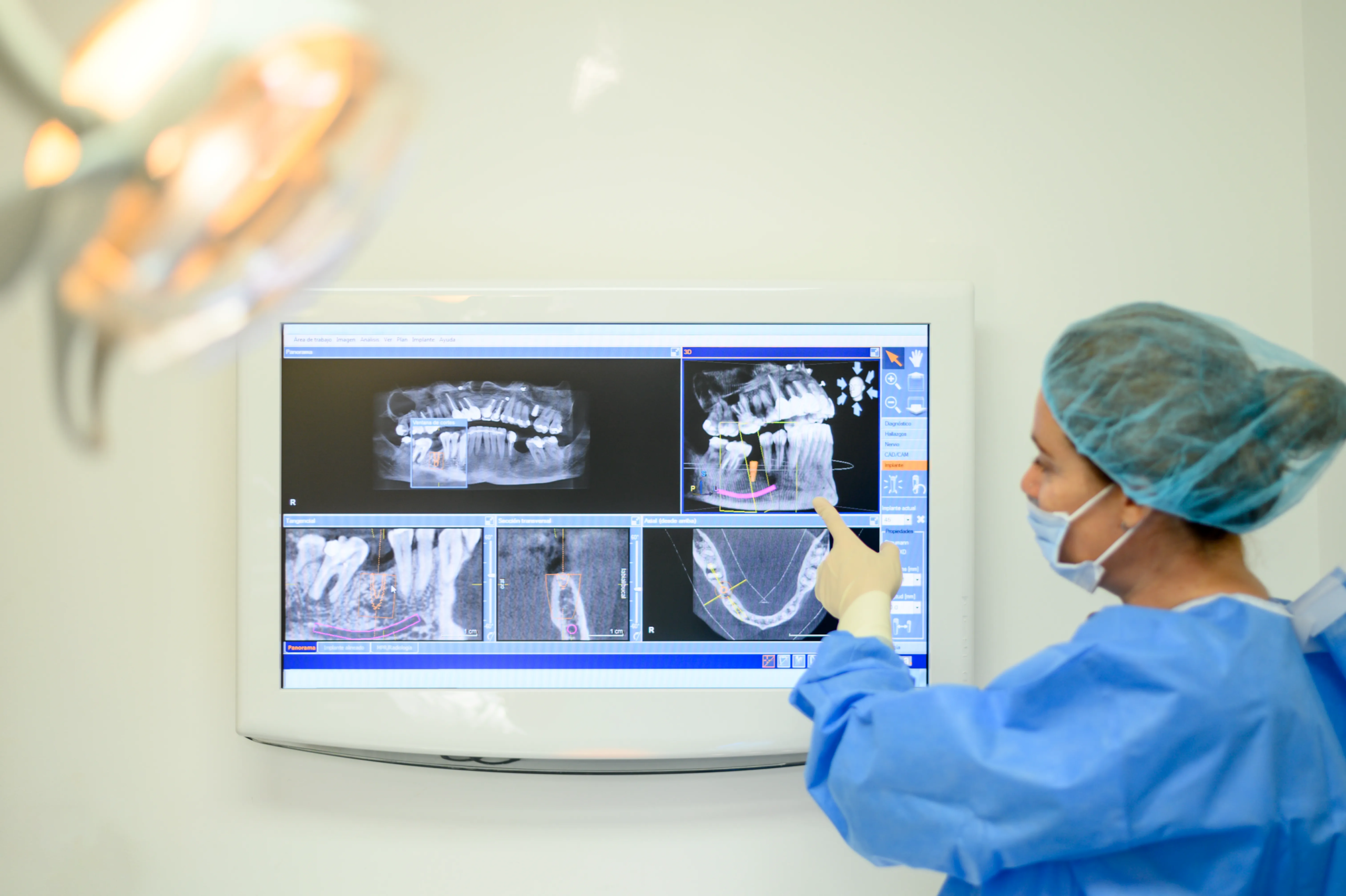
Regular Dental Check-Ups
Regular dental check-ups maintain the health of implants and surrounding tissues. A second appointment should occur every six months after getting implants to ensure that any potential issues are identified and addressed early.
Following a regular appointment schedule maintains implant health, prevents complications, and ensures longevity. Regular visits allow for early detection of issues, crucial for the long-term success of these restorations.
Avoiding Harmful Habits
Avoiding harmful habits is critical for maintaining the longevity of your new teeth. Teeth grinding can stress implants, potentially causing damage. To protect them, it is recommended to avoid biting hard materials and using teeth as tools.
Harmful habits can significantly impact the durability of these artificial tooth roots. Reducing these habits is crucial for maintaining implant integrity and longevity. By adopting healthier lifestyle choices, you can ensure that your restorations remain in optimal condition.
Recognizing and Addressing Dental Implant Issues
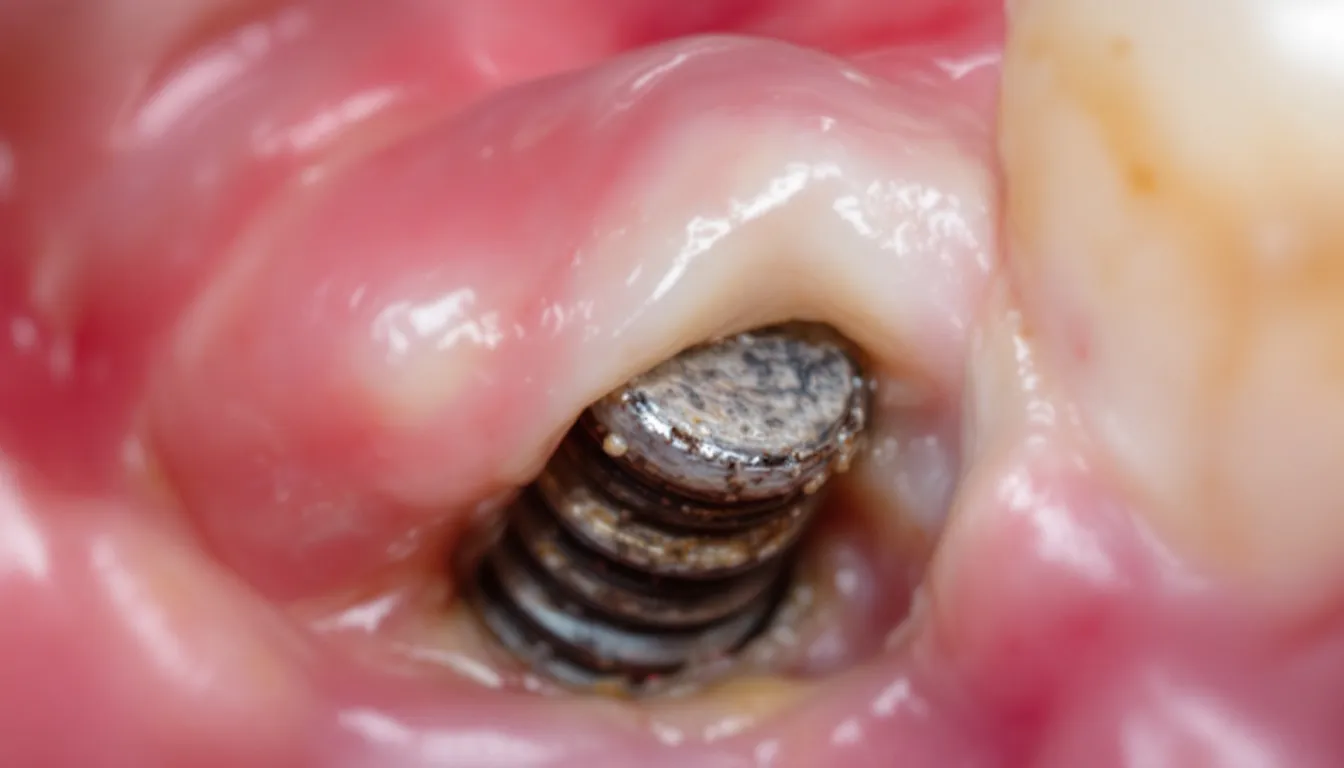
Promptly recognizing and addressing dental implant issues in the early stages is crucial for their health and longevity. Knowing the signs of implant failure and available treatment options helps manage complications effectively.
Signs of Dental Implant Failure
Signs of dental implant failure include discomfort, mobility, and infection around the implant area. Swelling or tenderness around the implant site may indicate potential failure. Additionally, a persistent bad taste or foul odor can accompany implant complications, signaling the need for immediate attention.
Regular dental visits are crucial for early detection of potential implant issues. Professional thorough cleanings and check-ups prevent infections and ensure implant longevity.
Avoid Inexperienced Surgeons
Choosing the right surgeon is vital for the long-term success of dental implants. Inexperienced practitioners may lack the skills needed for proper implant placement and tissue management, leading to complications and implant failure.
Studies show experienced surgeons have higher success rates and fewer complications. Prioritizing skilled professionals reduces early failure risk and helps ensure your implants last a lifetime. Investing in expertise also minimizes costs by avoiding complications and revision procedures.
When considering dental implants, factor in the cost of full mouth implants, which varies based on case complexity, materials, and dental team expertise. Understanding costs upfront helps plan this long-term oral health investment.
Treatment Options for Failed Implants
If a dental implant fails, promptly consult a dentist to determine the cause and necessary treatment. Treating peri-implantitis may involve thorough cleaning and local antibiotics to manage the infection.
In cases of severe infections or major complications with failed implants, surgical intervention may be required. When an implant cannot be saved, its removal is essential to prevent bone deterioration, and a bone graft might be necessary before placing a replacement.
Understanding Dental Implant Surgery: When Intervention Is Necessary
For deep infections or significant issues with failed implants, surgery may be necessary. If an implant is unsalvageable, removal is critical to prevent bone loss, and bone grafting may be required before replacement.
Dental implant surgery becomes essential when complications arise with existing implants or severe oral infections develop. The procedure involves precise imaging, careful tissue incision, and skilled removal of the problematic implant while preserving healthy surrounding structures.
After removing a failed implant, bone grafting is often necessary to rebuild deteriorated areas. This process uses donor or synthetic bone material to create a strong foundation for future implant placement, requiring a healing period of several months before a new implant can be successfully installed.
Alternative Tooth Replacement Options

When considering dental implants, it’s also important to be aware of alternative tooth replacement options. Dental bridges, for instance, use adjacent teeth for support and offer a fixed solution without the need for surgical procedures. They can restore functionality and aesthetics, especially if a dental implant fails. A tooth crown dental bridge is a prosthetic device consisting of two crowns anchored by false teeth.
Traditional dentures are another alternative, available in full or partial options. They can be customized to fit the patient’s mouth but may require regular adjustments to ensure comfort and function. Full-mouth dentures consist of a set of false teeth resting on the gums, held by suction or adhesive, while partial dentures are designed to replace some other teeth and attach to existing teeth.
Summary
In summary, dental implants provide a durable, long-lasting solution for tooth loss, often lasting 25 years or more with proper care. Their lifespan depends on factors like dentist expertise, bone health, medical conditions, implant quality, and lifestyle. Maintaining good oral hygiene, regular dental visits, and avoiding harmful habits are key to maximizing implant longevity.
Being aware of potential implant issues and treatment options, along with alternative tooth replacement methods, helps you make informed decisions for a healthy, beautiful smile.
Frequently Asked Questions (FAQ)
- How long do dental implants last? Dental implants can last up to 25 years or more with proper care and maintenance. Ensuring good oral hygiene and regular dental check-ups will significantly contribute to their longevity and support your oral and overall health.
- What factors influence the longevity of dental implants? The longevity of dental implants is primarily influenced by the dentist’s expertise, the patient’s bone health, existing medical conditions, the quality of the implants, and lifestyle choices. Each of these factors plays a critical role in ensuring the success and durability of the implants.
- How can I enhance the longevity of my dental implants? To extend the life of your dental implants, maintain good oral hygiene, attend regular dental visits, and avoid habits like smoking. These steps help keep your implants durable.
- What are the signs of dental implant failure? Dental implant failure may be indicated by discomfort, mobility of the implant, signs of infection such as swelling or tenderness, and a persistent bad taste or foul odor. It is crucial to consult a dental professional if these symptoms arise.
- What are the alternative options if a dental implant fails? If a dental implant fails, alternatives include dental bridges, traditional dentures, snap-on dentures, and All-on-4 implants. Each option can effectively restore function and aesthetics, depending on individual circumstances.
- How do I find a qualified teeth implant specialist near me? Finding a qualified implant specialist is key to successful treatment. At Dentistry on Guelph, our experienced specialists use the latest techniques and offer affordable care. We suggest checking credentials, reading reviews, and scheduling a consultation to ensure expertise and comfort.
- What credentials should I look for in a teeth implant specialist? When searching for an implant specialist, look for advanced training and certifications in implantology. Dentistry on Guelph’s specialists have completed extensive postgraduate education specifically focused on dental implants, with ongoing training to stay current with the latest advancements.
📩 Looking for a Trusted Dental Implant Services in Guelph?
Book an appointment for expert implant care and customized treatment options at Dentistry On Guelph.




